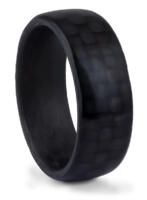Search Results
Showing all results for: “carbon”
Products
Fine Jewelry University (Show All FJU Articles)
-
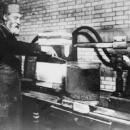
How Are Lab Grown Diamonds Made?
The dream of making a beautiful and valuable diamond from simple carbon has long captivated the imagination of scientists and visionaries alike. Just like the alchemists of old who sought …field. In 1893, he claimed to have successfully made a diamond by heating charcoal to 3,500 degrees Celsius inside a carbon crucible. Many attempts were made to reproduce his techniques with some reported successes, but none could ever be … and temperature where diamond growth can occur. Each process starts with a small diamond seed which is placed in carbon and put under very high pressure and temperature to grow the diamond. The 10.02ct HPHT Diamond Made by NDT. Thanks to …
-
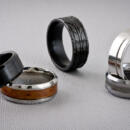
Alternative Metals for Men’s Jewelry
… pure tungsten. They are made out of tungsten carbide which is created by combining an equal number of tungsten and carbon atoms. Tungsten carbide rings need to combine tungsten ore in a powder form with various binders mixed together at … tungsten carbide. Higher quality tungsten carbide has a low amount of nickel and a high percentage of tungsten and carbon. Low quality tungsten jewelry has a lower percentage of tungsten. This is why there is a wide range of prices for …
-
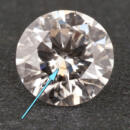
What Are Lab Grown Diamonds?
… synthetic diamonds is the Chemical Vapor Deposition (CVD) technique. In the CVD process, a chamber is filled with a carbon rich vapor. Carbon atoms are extracted from the rest of the gas and deposited on a wafer of diamond crystal which …
-

How to Tell If a Diamond Is Natural or Lab Grown
… some tools available to help us do this. One of the best indicators of whether a diamond is lab grown is whether or not it is a Type IIa diamond. Type IIa is actually a gemological variant of the diamond that relates to how pure the carbon is that makes up the diamond. In nature, less than 2% of all diamonds are Type IIa, however, most gem quality lab grown diamonds are Type IIa. So, if a diamond is Type IIa, that’s a pretty good indication that it is lab grown. However…
-
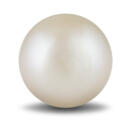
Gem in the Spotlight: Pearl
…Get up to speed quickly with these key terms and their definitions: Akoya Cultured pearls grown primarily in Japan and China. Blemish A flaw (scratch or abrasion) on the surface of a gem. Body color The basic color of a pearl Calcium Carbonate The main mineral component of a pearl’s nacre, or outer layer. Mostly calcite and aragonite. Cultured pearls Pearls cultivated by artificial insertion of a small bead, often made of mother-of-pearl and mantle tissue, into an oyster…
-
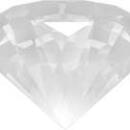
Fake Diamonds: The Great Diamond Attack
…use words with particular meanings. Synthetic is one of those words. Synthetic, in the gem world, means made of the same chemicals (elements) and crystal design as nature but is man made. So, a synthetic diamond is the same chemistry (carbon element) and crystal structure (cubic) as natural diamond but made in a factory. Yes, they can make synthetic diamonds and have for many years now. Most are used in the manufacturing of tools like diamond tip drills. Synthetic diamond…
Blog Posts
-
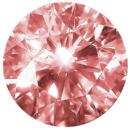
Fancy Color Diamonds
… their diamond-like brilliance. Green Most other diamond colors happen when another element is add to the pure carbon of diamonds, but with green diamonds the color is the result of a change in the construction of the crystal lattice of the…
-

Manly Jewelry for Men
…in store today. Alternative Metals You may see some materials here that you don’t recognize. Titanium and Tungsten have become well known as jewelry metals, but we also offer bands in some more unique materials like Zirconium, Cobalt, Carbon Fiber, etc. If you are curious about any of these new options, checkout our article on alternative metals for men’s jewelry . We break down all of today’s most common metals and give you the pros and cons for each. If you are …
